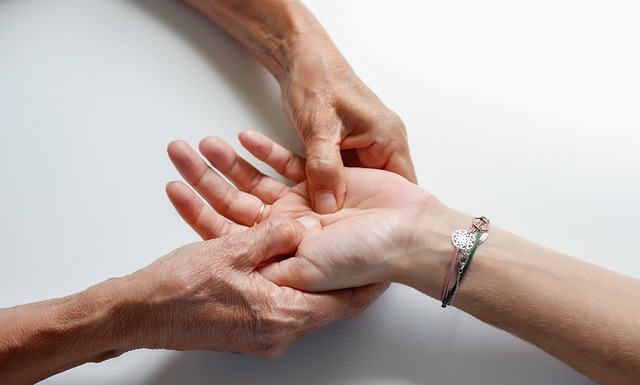Trauma-informed care is vital in massage therapy, addressing the hidden issue of sexual assault and other traumas affecting diverse clients. In Illinois, massage abuse law firms have played a crucial role in setting safety standards. This approach recognizes the impact of trauma on mental and physical health, providing non-judgmental spaces for survivors to heal. Massage therapists are encouraged to recognize trauma signs, tailor sessions, and stay informed about legal protections, fostering trust and enhancing therapeutic experiences while ensuring client safety, especially for those with past traumatic experiences.
Trauma-informed care is transforming the wellness industry, particularly within massage therapy. This practice recognizes the profound impact of trauma on individuals’ physical and emotional well-being. Given the prevalence of traumatic experiences, massage therapists in Illinois play a crucial role in providing safe, supportive spaces for survivors. This article explores how trauma-informed approaches can be implemented in sessions, focusing on legal considerations and support resources available to massage therapists navigating this sensitive area, especially in the context of past abuse.
The Prevalence of Trauma and Its Impact on Individuals

Trauma is a pervasive and often invisible issue that significantly impacts individuals across various demographics, including those seeking therapeutic services like massage therapy. According to research from massage abuse law firms in Illinois, an estimated one in three women and one in six men in the United States have experienced sexual assault at some point in their lives. This staggering statistic highlights the pervasiveness of trauma and its potential long-lasting effects on mental and physical health.
The impact of trauma extends beyond the immediate experience and can manifest in numerous ways, including chronic pain, anxiety, depression, and flashbacks. For survivors of massage abuse or other forms of trauma, receiving care that acknowledges and respects their unique needs is vital for healing. Trauma-informed care in massage therapy involves creating a safe, non-judgmental environment where survivors feel empowered to share their experiences and begin the process of recovery.
Massage Therapy as a Healing Touch: A Safe Space for Trauma Survivors

Massage therapy, often viewed as a luxurious and relaxing experience, can also serve as a powerful tool for healing among trauma survivors. In Illinois, where massage abuse law firms have been instrumental in establishing safety standards, trauma-informed care is gaining recognition within the therapeutic community. This approach recognizes that many individuals who have experienced trauma, such as sexual assault or domestic violence, may find solace and security in the comforting touch of a skilled masseuse.
Creating a safe space for trauma survivors during massage sessions involves more than just physical relaxation. It entails understanding the unique needs and triggers of each client, adapting therapeutic techniques accordingly, and fostering an environment free from judgment. By integrating trauma-informed practices, massage therapists can help clients process their experiences, manage symptoms of post-traumatic stress disorder (PTSD), and develop coping mechanisms for emotional distress. This holistic approach not only addresses physical tension but also supports the psychological well-being of survivors navigating the complexities of trauma recovery.
Recognizing the Signs: Identifying Trauma-Informed Care Needs in Clients

Massage therapists play a vital role in recognizing and addressing trauma-informed care needs among their clients, especially those who may have experienced massage abuse at the hands of previous therapists. Understanding the signs of trauma is crucial for providing safe and supportive environments. Therapists should be attuned to physical cues like excessive tension, avoidance behaviors, or sudden emotional responses during treatment. These could indicate past traumatic experiences that might impact an individual’s current wellness.
By being observant and empathetic, massage therapists in Illinois can create a therapeutic space that caters to the unique needs of trauma survivors. This approach ensures that clients feel heard and respected, fostering trust and encouraging them to share their stories if they’re ready. It’s essential for professionals in this field to stay informed about the legal aspects, as well, as awareness of massage abuse law firms in Illinois can help protect both therapists and victims.
Implementing Trauma-Informed Practices in Massage Therapy Sessions

Implementing Trauma-Informed Practices in Massage Therapy Sessions involves a deep understanding and sensitivity to clients’ past traumatic experiences. Massage therapists in Illinois, who are often dealing with individuals from diverse backgrounds, must be equipped to recognize signs of trauma and respond appropriately. This includes creating a safe, non-judgmental space where clients feel empowered to share their stories at their own pace.
Trauma-informed care for massage therapy incorporates techniques that promote relaxation, grounding, and self-regulation while prioritizing the client’s emotional well-being. Therapists may adapt their approach based on individual needs, incorporating elements like guided imagery, deep breathing exercises, or specific massage strokes known for their calming effects. By integrating these practices, massage therapists in Illinois can offer a supportive environment that addresses not just physical tension but also the complex interplay of mental and emotional scars left by trauma.
Legal Considerations and Support for Massage Therapists in Illinois

In Illinois, the legal landscape regarding massage therapy is evolving to better address trauma-informed care. The state has been at the forefront of recognizing and legislating against massage abuse, with law firms dedicated to supporting victims and holding perpetrators accountable. These efforts are crucial in fostering a safe environment for clients, especially those who may have experienced past traumas.
Massage therapists in Illinois play a vital role in navigating this complex issue. They must be aware of the legal protections available to clients, such as laws against sexual harassment and assault during therapeutic sessions. Additionally, therapists can access support from local advocacy groups and law firms specialized in massage abuse cases, ensuring they have the resources needed to provide informed consent and maintain client confidentiality while adhering to ethical practices.






